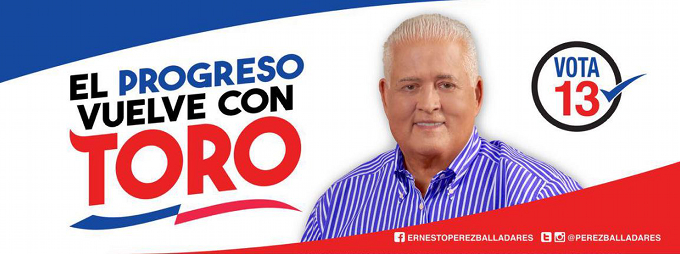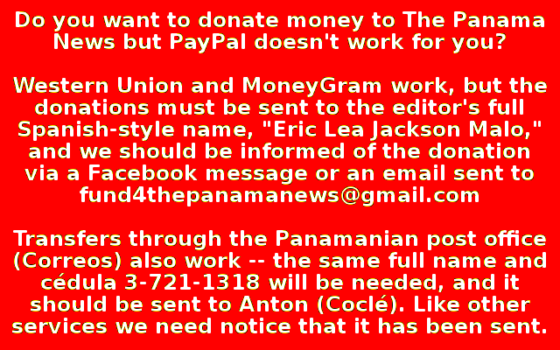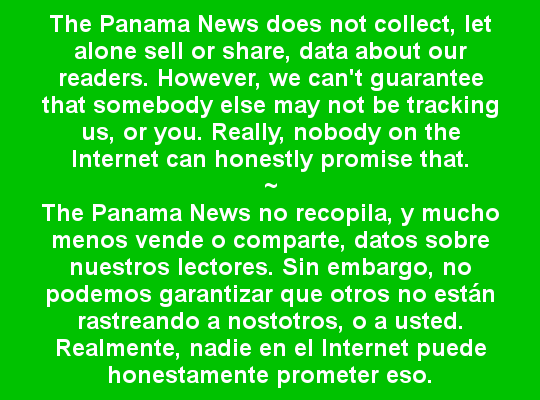
Election season underway in Panama
by Marco A. Gandásegui, hijo
}The primaries held by the Panamanian political parties to elect their candidates for president and other elected offices bring us little that is new. In the case of Cambio Democratico this past Sunday they came out as expected. It will be the same with the ruling Panameñista Party and the Democratic Revolutionary Party (PRD). The Broad Front for Democracy (FAD), the only party with a platform that rejects neoliberal policies, will also have primaries in October. That’s the only alternative party offering new things.
The Panameñista Party has governed for four years since (2014) without any known program, following the neoliberal policies of its predecessors that have made it to power since the US invasion in 1989. The Panameñista candidates, who will hold their primaries next month, still have presented no working plan and probably will not do so. In 2014 the current president got to the Palacio de las Garzas with the slogan of “100% water and zero privies.” It was just a slogan but it yielded good election results.
The PRD, for its part, tries to resolve its internal problems without much success. Their hopefuls for the presidential nomination a known old faces, among them an ex-president. The PRD was founded by General Omar Torrijos in 1978 with the intention of occupying the middle of the political spectrum, between the left and the right. These days it sits on the right and backs neoliberal policies both in domestic policy (privatization, deregulation and flexible labor rules) and foreign policy (following the lines set by the US State Department and the international financial agencies).
CD had a traumatic experience during the Ricardo Martinelli presidency (2999-2014). He abused power to pull off operations that have been denounced as illegal. Martinelli himself is on trial and finds himself incarcerated. Despite this past a former minister in his cabinet and the official CD candidate, Rómulo Roux, says that he will get to the presidency in May of 2019. Roux presents on platform that identified the country’s problems and possible solutions. He only repeats the demagogic slogans of all the other neoliberal parties – more schools, better roads and water for all communities.
The experience of the last 30 years has been a systematic impoverishment of the popular sectors (75 percent of the population), a stagnation of the incomes of the middle classes (almost 25 percent of the population) and an impressive enrichment of a small elite of families (fewer than one percent) that monopolizes the country’s income. Neoliberal policies have ruined the agricultural sector and industry has practically disappeared.
The discourse of the candidates of the three main parties and their little appendix parties promise to increase welfare-type subsidies without mentioning he need to increase national production. With revenues coming from our geographical position (the Panama Canal, the ports and related activities) they satisfy those aspirations. That’s not the least. The recovery of our geographic position, as a consequence of the Torrijos – Carter Canal treaties of 1977, which entered into full effect in 1999, made the country’s income shoot up. But working people, in the countryside and in the city, have lost their jobs while those who manage the finances have seen their fortunes grow almost without limit.
The indicator that’s so popular among economists, the Gross Domestic Product, went from less than $10 billion in 2000 to almost $60 billion in 2917. The parties have the job of convincing the population, especially the workers, that thanks to these billions that have come into the country they will be better off than before. The mission is ever more difficult since the citizenry does not participate in the division of this fortune and now does not believe in the parties’ “democracy.”
In another article I will analyze the role of independent candidates this time, who may be the solution to the parties’ lost legitimacy.
FAD, which is not one of the neoliberal political parties, advocates a change that consists of regulating government tasks and their relationship with the business sector. On the one hand they would do away with the rampant corruption and on the other raise up the country’s productive sectors, both agriculture and industry.
~ ~ ~
These announcements are interactive. Click on them for more information.













